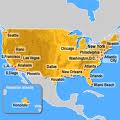West Coast Unions Cave In to Democrats

The big public sector unions of California and Oregon had their courage examined recently — both were found lacking. The unions backed down from a challenge from their respective Democratic governors, before any fight could be waged. The issue at stake was whether to tax the rich of both states to offset the state deficits caused by the Great Recession, itself caused by the rich.
In both cases labor unions had readymade tax-the-rich ballot measures they were preparing to wage campaigns for: in California the Millionaires Tax and in Oregon a similar measure without the flashy nickname. In both cases the Democratic governors asked the unions to back off and choose a “less controversial” path. The unions succumbed.
In California’s case the unions agreed to a rotten compromise, which taxes the rich at a lower rate while including an increase in the state sales tax that disproportionally affects working and poor people — unacceptable given the dire economic circumstances that have pushed many working people into poverty.
In Oregon’s case the unions agreed not to tax the rich and pursue instead the elimination of the “corporate kicker,” a reference to the refund that corporations get from the state if their revenue exceeds state economist expectations. Yet even if the refund is eliminated, it’s possible that — given the sour economy — zero revenue will be raised.
Revenue is desperately needed. Across the country states and cities are slashing services, cutting jobs and attacking unions because politicians claim “there is no money.” That is a lie. There is plenty of money in the United States, though it has accumulated at the very top; the richest 1% continue to take the lion’s share of the national income, just as they did before the Great Recession.
Democrats and Republicans act mute when asked about alternatives to slashing services to fix deficits; both refuse to even mention taxing the rich and corporations. In the exceptional cases where the rich are taxed, it’s in tiny portions to assuage the pressure of public opinion and unions.
The only solution is for labor unions and community groups to unite to tax the rich by mobilizing the broader community to apply massive pressure on the politicians. But before unions act boldly, they must first learn not to rely on the Democrats.
For example, Oregon’s largest paper, the Oregonian, reports:
“Kizhaber [the Governor] has been having a series of meetings with business and labor leaders to talk about tax reform — and to discourage labor from striking out on its own on tax policy.”
Interpretation: the Governor didn’t want the unions to tax the rich.
In response: “…union leaders agreed with Gov. John Kitzhaber that they did not want to re-ignite another acrimonious tax debate. Business and labor leaders waged a bitter battle over two tax measures– 66 and 67– that were approved by voters in January of 2010.”
Measures 66 and 67 were a huge victory for unions and all working people in Oregon. After intense public debate, the measures were passed by a big majority in a statewide election, raising temporary taxes on the wealthy and corporations. Measure 66 expired at the beginning of 2012, and new revenue is needed to replace it.
But the unions have chosen a different path. One of Oregon’s public sector union leaders commented:
“I’d rather people work together on this tax reform stuff than go our separate ways.”
If union leaders think that they are going in the same direction as the Democrats, they’d better invest in a compass and a map.
Governor Kitzhaber thanked the unions who campaigned for him by demanding historic concessions; public workers took unprecedented cuts in health care combined with statewide furlough days. The example of Oregon has been repeated on a state-by-state basis; the Democrats have parted ways with unions while the unions are stuck in denial.
In the real world unions are in the fight of their lives and many of their leaders do not want to “cause conflict.” This sad state of affairs can only be temporary, since reality will continue to prove such ideas to be useless, as living standards continue their downward spiral.
Backing down from the challenges posed by public deficits does not empower union members to fight back, nor does it inspire confidence from the broader public, who are not blind to this very public weakness.
If unions waged an aggressive, independent political campaign to tax the rich on a city, state, and national level, the vast majority of the public would rally to their side and join the fight. Education, health care, transportation, and other social services can be saved by taxing the wealthy and corporations, but it will take the combined effort of labor and community groups to successfully demand this alternative and fight for it.
Shamus Cooke is a social service worker, trade unionist, and writer for Workers Action (www.workerscompass.org).
He can be reached at [email protected]
http://www.oregonlive.com/politics/index.ssf/2012/04/oregon_unions_decide_not_to_se.html

